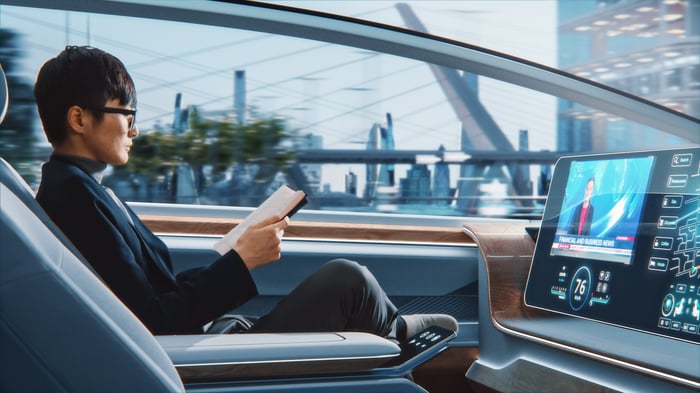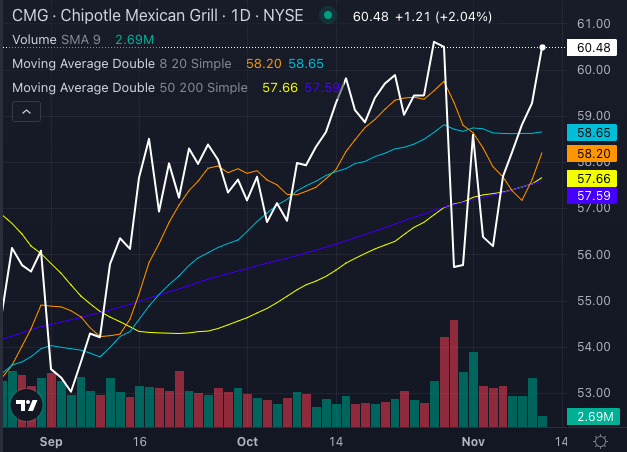The automobile market finds itself in a renaissance, with global car manufacturers investing heavily in battery-powered vehicles, the cornerstone of the green energy movement.
The concept of self-driving cars has gained traction among both traditional car manufacturers and tech companies. General Motors has been actively exploring self-driving technology for years, notably acquiring a majority stake in Cruise back in 2016.
The Dwindling Fortunes of Cruise
Despite early promise, Cruise has faced numerous operational challenges over the years. Most recently, reports suggest that Cruise’s valuation has plummeted by over half, indicating a troubled road ahead.
This turn of events sheds light on why Tesla, the electric vehicle pioneer, might emerge as the ultimate victor in the wake of General Motors’ recent setbacks.
Self-Driving Competitors and Controversies
Cruise is just one player in the vast landscape exploring autonomous driving technology. Alphabet’s subsidiary, Waymo, and Tesla have long been frontrunners in this space. The autonomous driving unit, Dojo, has even been touted as a potential trillion-dollar business by notable investor Ron Baron.
Despite significant investments from companies like Honda and Microsoft, Cruise has faced controversy. In late 2023, operational obstacles mounted, leading to suspensions of services and a chain of layoffs exacerbated by mismanagement issues.
As challenges mounted, Cruise’s founder, Kyle Vogt, stepped down, signaling a tumultuous period for the self-driving start-up.
The Troubled Partnership Between Cruise and GM
When exploring new technologies, companies often grapple with whether to develop internally or seek external solutions through mergers and acquisitions. General Motors’ investment in Cruise was an attempt to swiftly enter the self-driving market without extensive research and development efforts.
However, the $5.7 billion spent by General Motors on Cruise between 2022 and 2023 has yet to yield significant returns. With operating losses amounting to $4.6 billion, Cruise’s financial health remains in the red, despite having $1.3 billion in cash reserves.
Tesla: The Potential Victor
General Motors’ recent woes with Cruise cast doubt on its standing in the electric vehicle and self-driving car sectors. In contrast, Tesla’s unwavering commitment to technological advancement positions it as a frontrunner in the industry.
While the timeline for Tesla’s commercialized self-driving technology remains uncertain, CEO Elon Musk hints at an accelerated arrival, potentially sooner than anticipated. Tesla’s proactive approach to innovation sets it apart from competitors like General Motors.
Data Source: TSLA Free Cash Flow (Quarterly) by YCharts.
Unveiling Tesla’s Potential: Will the Electric Car Manufacturer Lead the Tech Evolution?
Tesla on the Cusp of Technological Transformation
Although Tesla stands as a car company today, its metamorphosis into a dominant technology powerhouse looms on the horizon. As self-driving technology takes center stage, the dynamics in the automotive industry are shifting. While General Motors grapples with challenges in this arena, Tesla emerges as a beacon of innovation and resilience. The woes at Cruise serve as a poignant reminder of the uphill battle traditional automakers face in adapting to the evolving tech landscape.
The Rise of Tesla’s Autonomous Driving Ambitions
In a strategic move that could redefine the industry, Tesla’s foray into the realm of self-driving technology holds immense promise. The potential to license its cutting-edge software to other car manufacturers mirrors its successful supercharger network model. This strategic positioning catapults Tesla into pole position in the race for autonomous driving supremacy, unlocking a lucrative multibillion-dollar opportunity that could reshape the automotive sector.
Innovation and Growth Trajectory of Tesla
Looking ahead, Tesla’s trajectory seems set to ascend as it harnesses the power of innovation and technological prowess. By leveraging its self-driving ambitions and ecosystem, Tesla is poised to revolutionize the automotive landscape and secure a competitive edge that transcends traditional industry boundaries.
Investment Insights: Tesla vs. General Motors
Amidst the evolving industry dynamics, investors keen on long-term growth and tech-centric opportunities may find Tesla stock a compelling choice. While General Motors remains a stalwart in the automotive realm, its challenges in the self-driving arena underscore the shifting tides within the industry. The strategic vision and technological prowess exhibited by Tesla position it as a frontrunner in shaping the future of transportation.
The Future Landscape of Automotive Technology
As Tesla forges ahead with its disruptive innovations and ambitious endeavors, the company’s evolution from a car manufacturer to a tech heavyweight sets a precedent for industry transformation. The convergence of automotive prowess and technological innovation places Tesla at the helm of a new era in transportation, where boundaries blur and possibilities unfold.




